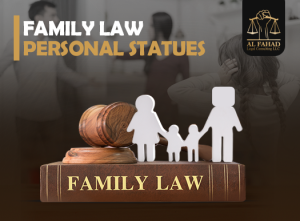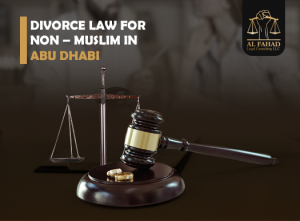Family law in the UAE plays a crucial role in shaping the lives of individuals and families in the United Arab Emirates (UAE). It encompasses a wide range of legal matters related to marriage, divorce, child custody, inheritance, and more. Understanding the intricacies of family law in the UAE is essential for individuals and families to protect their rights and navigate legal processes effectively.
 Family Law Services
Family Law Services

-
- Marriage and Divorce:
Marriage in the UAE involves legal requirements and procedures that must be followed. This includes obtaining a marriage contract, fulfilling the necessary documentation, and adhering to specific conditions. Understanding the legal framework surrounding marriage can help individuals ensure compliance and protect their rights.
Divorce procedures in the UAE are governed by both Islamic Sharia law and civil law, depending on the circumstances and the parties involved. It is essential to be familiar with the grounds for divorce, the legal processes, and the potential implications on child custody, financial matters, and property distribution.
-
- Child Custody and Support:
Child custody matters are of utmost importance in family law cases. The UAE prioritizes the best interests of the child when determining custody arrangements. Understanding the factors considered by the courts, the types of custody (sole, joint, or shared), and the procedures for child custody disputes is crucial for parents navigating family law matters.
Child support is another significant aspect of family law in the UAE. Courts take into account the financial needs of the child when determining support obligations. Familiarizing oneself with the guidelines for calculating child support and the legal procedures for enforcing support orders can ensure the well-being of the child and protect the rights of the custodial parent.
-
- Inheritance and Succession:
Inheritance laws in the UAE are influenced by Islamic Sharia principles. These laws govern the distribution of assets and properties after an individual’s death. Understanding the rules pertaining to inheritance rights, the concept of forced heirship, and the procedures for estate administration and distribution is crucial for individuals and families planning their estates.
The Personal Status Law of the UAE, Federal Law No. (28) of 2005 AD, as amended, applies to the individual’s personal status, including the following aspects: Marriage and its effects Marital separation, including divorce, separation and separation Custody of children.
The UAE Personality Law, Federal Law No. (28) of 2005 AD, as amended, is applied on the basis of the individual’s personality, including the following:
* Love and its effects.
* Section teams including divorce, divorce and separation.
* Nursery.
* Eligibility.
* Temperature.
* The will.
* Estates and inheritances.
Scope of law
The provisions of this law apply to citizens of the United Arab Emirates, unless non-Muslims among them have provisions specific to their sect and religion. The provisions of this law also apply to non-citizens, unless one of them insists on applying the law of his home country, provided that without prejudice to the provisions of Articles 12, 13, 14, 15, 16, 17, 27, and 28 of the Civil Transactions Law promulgated by Federal Law No. (5) of the year 1985, and its amendments.
 Revolutionizing Divorce Law for Non-Muslims in Abu Dhabi
Revolutionizing Divorce Law for Non-Muslims in Abu Dhabi
 Amendments to the Personal Status Law:
Amendments to the Personal Status Law:
There have been several amendments to Federal Law No. (28) of 2005 regarding personal status, including:
* Federal Decree Law No. 8 dated 8/29/2019.
* Federal Decree Law No. 5 dated 08/25/2020.
* Federal Decree Law No. 29 dated 09/27/2020 AD.
Last updated on May 09, 2023


 Amendments to the Personal Status Law:
There have been several amendments to Federal Law No. (28) of 2005 regarding personal status, including:
* Federal Decree Law No. 8 dated 8/29/2019.
* Federal Decree Law No. 5 dated 08/25/2020.
* Federal Decree Law No. 29 dated 09/27/2020 AD.
Last updated on May 09, 2023
Amendments to the Personal Status Law:
There have been several amendments to Federal Law No. (28) of 2005 regarding personal status, including:
* Federal Decree Law No. 8 dated 8/29/2019.
* Federal Decree Law No. 5 dated 08/25/2020.
* Federal Decree Law No. 29 dated 09/27/2020 AD.
Last updated on May 09, 2023